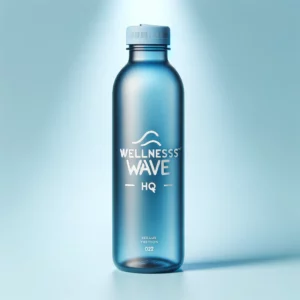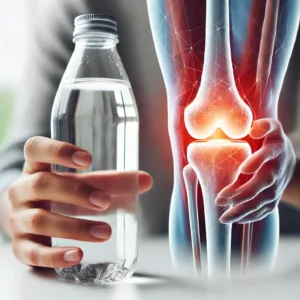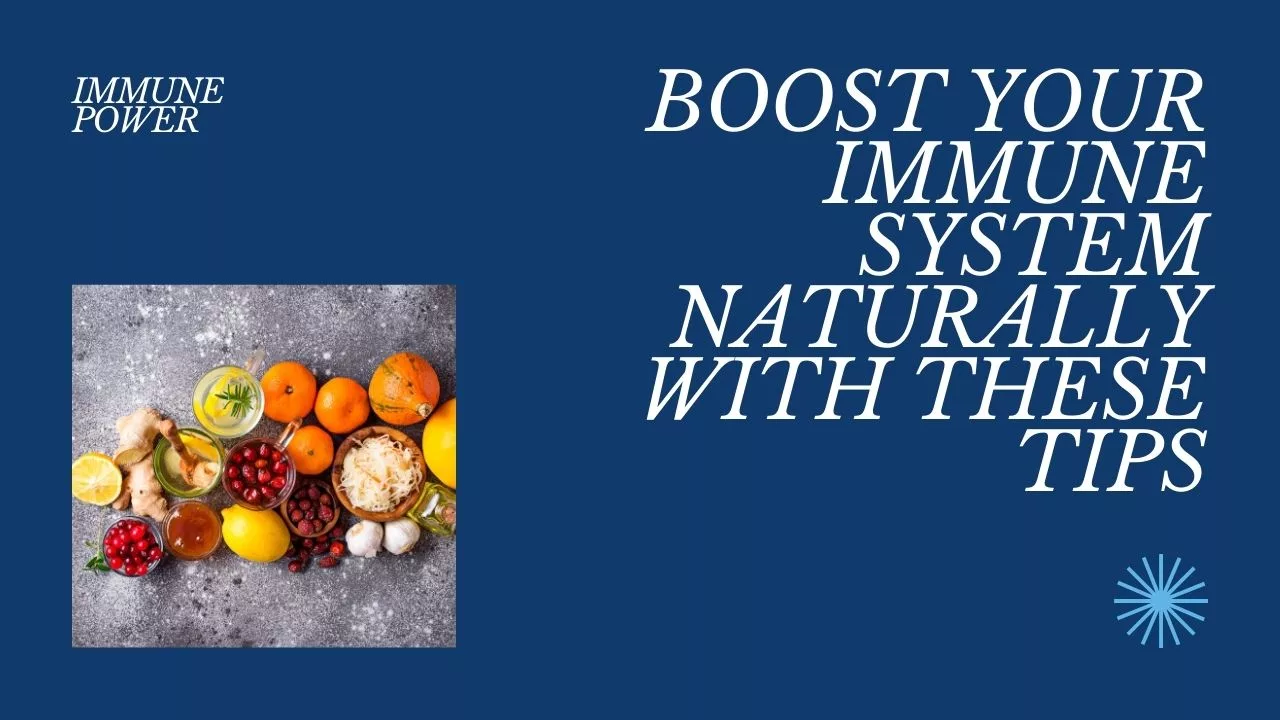
What if strengthening your immune system could also help manage your chronic pain? It’s not just about fighting off colds or the flu—what you eat has the power to reduce inflammation, boost immunity, and ease chronic pain symptoms. In this article, we’ll explore how harnessing the right nutrients can supercharge your body’s defenses and help you feel better, inside and out.
Your immune system is your body’s defense system. Here, we are going to set the stage for how your immune system works in tandem with nutrition. It’s not just about popping a few vitamins here and there; it’s about creating a harmony of nutrients that bolster your body’s defenses.
A strong immune response relies on a well-rounded diet. You’ll learn how essential vitamins, minerals, and other nutrients support key players in your immune system—like antibodies and white blood cells—working together to form your internal line of defense.
Some nutrients pack more of a punch than others when it comes to boosting immunity. We’ll explore these heavy hitters and where to find them in your diet, including vitamin C, B vitamins, and amino acids that play vital roles in immune function.
Now what’s fascinating is the way different food groups work better together, like a symphony, each contributing a unique note to the overall performance. A diet that’s not just varied, but also harmonious, can enhance the immune system’s efficiency more than you might think.
Chronic Pain Connection: Strengthening your immune system can also help manage chronic pain. Inflammation is a common cause of chronic pain, and many nutrients that boost immunity also have anti-inflammatory properties. By focusing on immune health, you can potentially reduce inflammation and alleviate some pain symptoms.
Sunshine and Seafood
The Wonders of Vitamin D
Vitamin D isn’t just for bones; it’s a key player in maintaining a strong immune system. Low levels of vitamin D have been linked with a higher susceptibility to infection, which is why getting enough is crucial. Your body synthesizes vitamin D through exposure to sunlight, so a daily dose of sunshine can help, especially during the short days of winter. However, I want to remind you that it’s important to balance sun exposure with skin health concerns – nobody wants to trade one health issue for another! 
For those not getting enough sunshine, or for the sun-shy among us, there are dietary sources of vitamin D to consider, too. Fatty fish like salmon and mackerel, eggs, and fortified foods such as milk and orange juice can step in to keep those vitamin D levels up.
The Power of Zinc
Now, let’s talk about zinc. This mineral doesn’t get as much limelight as vitamin D, but it’s just as essential for keeping your immune system fighting fit. Zinc helps control and regulate immune responses. Your body doesn’t produce zinc, which means you must get it from your diet. Oysters pack the most punch, zinc-wise, but if they’re not your thing, beef, poultry, and fortified cereals are good options as well.
Choosing zinc and vitamin D-rich foods doesn’t mean forgoing taste. You can whip up a delicious oyster stew, grill some salmon, or even simply have a bowl of fortified cereal with a splash of milk. These options not only support your immune system but also make your taste buds happy. And remember, you can always adjust your approach down the road if you find what works best for you.
Both vitamin D and zinc have been found to play roles in pain management. Vitamin D deficiency is linked to increased pain sensitivity and chronic pain conditions. Adequate zinc levels can help reduce inflammation and support immune function, which is crucial for those dealing with chronic pain. Incorporating these nutrients into your diet can help support both immune health and pain management.
Hydrate to Invigorate: Water’s Role in Immune Health
I’m going to let you in on a little secret: water is your immune system’s best friend. You read about The Real Magic of Water in an earlier article. Every system in your body depends on water to function, and that includes the mighty warriors of your immune system. Now, you might be wondering just how water ties into your body’s defense mechanisms. Stay with me, and you’ll find out about the intricate dance between hydration and your immune health.
Dehydration doesn’t just make you thirsty – it’s a stress on your body that can weaken your defense against illnesses. Signs like dry mouth, headache, or fatigue are your body’s way of waving a red flag, letting you know it’s time to drink up. Remember, if your immune system were an army, water would be its supply line, essential for transporting nutrients to the troops and carrying away waste and toxins.
Don’t worry too much about memorizing specific water intake numbers. Instead, choose something that resonates with you: carry a water bottle, set reminders, or include hydrating foods in your diet like cucumbers and watermelon. The goal here is simple: make sure you’re getting enough water to keep everything running smoothly, especially when it comes to your immune system.
You can always adjust your approach down the road, but for now, think of hydration as a core part of your immune-boosting strategy. When your body is well-hydrated, immune cells are more efficient at their job, and systems that remove toxins are better supported. It’s a chain reaction that lays the groundwork for vibrant health – a direct link between chugging that H2O and keeping your immune system in peak condition.
Proper hydration is also crucial for managing chronic pain. Dehydration can exacerbate pain symptoms and contribute to muscle cramps, joint pain, and overall discomfort. By ensuring adequate water intake, you not only support your immune system but also help maintain joint lubrication, reduce muscle soreness, and improve overall physical function, which can alleviate some of the burdens of chronic pain.
HYDRATION AND CHRONIC PAIN MANAGEMENT
For chronic pain sufferers, dehydration can exacerbate symptoms, increasing pain sensitivity and flare-ups. Staying hydrated helps maintain tissue suppleness and reduce inflammation, which can ease discomfort from conditions like arthritis and fibromyalgia. Research shows that dehydration may worsen inflammation and muscle stiffness, leading to higher pain levels. {The Painless Center}. 
Incorporating a hydration routine can be a simple yet powerful tool in managing chronic pain more effectively. According to studies conducted by the National Institutes of Health (NIH), proper hydration helps reduce inflammatory markers and supports healthy joint function {NHLBI, NIH}.
Water plays a crucial role in the production of synovial fluid, which lubricates joints and cushions them, reducing friction and pain. Chronic pain sufferers can experience noticeable benefits simply by staying hydrated, as it helps the body function at its best {National Institutes of Health}.
How much water are you drinking daily? Is it enough to support your pain management goals?
Clean Eating for Immune Strength: Avoiding Sugars and Processed Foods
Now, let’s move beyond hydration and talk about the critical impact of reducing sugars and processed foods on your immune system. You may have heard that sugar can be harmful to your health—and when it comes to your immune defenses, this couldn’t be more accurate. High consumption of added sugars can fuel inflammation and weaken your immune response.
Processed foods come with an array of issues, too. Not only do they tend to be high in sugars, but they’re also loaded with preservatives and artificial ingredients that can disrupt your gut microbiome—an essential player in maintaining a strong immune system.
Making this shift might seem overwhelming, but it doesn’t have to be. Start by reading labels and choosing products with simple, recognizable ingredients. Swap sugary drinks for water or herbal tea, and when cravings hit, opt for fruit instead of a candy bar.
By focusing on whole foods like fruits, vegetables, lean proteins, and whole grains, you’re not just avoiding the pitfalls of processed items—you’re actively boosting your immune system’s strength. Whole foods are the cornerstone of a healthy, immune-boosting diet.
Reducing sugar and processed foods is also key for managing chronic pain. Excessive sugar intake and processed foods can increase inflammation in the body, which can make pain symptoms worse. By eating clean and focusing on whole, anti-inflammatory foods like leafy greens, berries, and fatty fish, you can support both your immune system and chronic pain management. (We have a list of the best Anti-Inflammatory Diet Cookbooks for you! Go look at our review, right now!)
Final Thoughts
Your immune system is one of your most valuable assets, especially for those managing chronic pain. By embracing clean eating habits, staying hydrated, and ensuring you get the right vitamins and minerals, you can give your body the tools it needs to both fend off illness and reduce pain. Small, consistent changes—like swapping sugary snacks for nutrient-dense alternatives—can have a profound effect on your overall well-being.
Remember, it’s not about striving for perfection, but making mindful choices that appeal with your health goals, which make them easier to maintain. Your body will thank you as you gradually build resilience, one nutrient and one meal at a time.


My wife has a rare autoimmune disease. Thank you for writing this article in way that was informative and easy for someone like me to understand. Through the years, trying to read about this stuff was boring or difficult to understand. We can begin changing our diet to make sure that we both benefit.
Wonderful, David! There is a lot of information surrounding your immune system and it is quite easy to get lost in it all. I am sorry to hear about your wife. And so happy to hear that this article helped in clarifying some dietary changes that will help you both. May I ask what autoimmune disease she has? Depending on the various symptoms that she has, there may be further dietary changes that may help. Or even you! Don’t forget the caregiver. It is very easy to overlook yourself when caring for a loved one. I would be more than happy to assist you and your wife in any way. Here at Wellness Wave HQ, we care about our readers and love when you leave us comments and especially when you ask questions! Hope to hear from you and your wife soon. Until then, may you both be well and happy.
Courtney